House Hacking (Part 1)
This week on the Mind of a Millionaire podcast, we’re joined by real estate pros Dan Mackin, Norah Lile, and TJ Lile to discuss an increasingly popular term: house hacking.
Dan Mackin is a metro-area real estate broker and host of the Millenial Real Estate Investors podcast. Growing up in Louisville, Colorado, Dan specializes in working with real estate investors and first-time home buyers.
TJ and Norah Lile are the husband-wife combo that founded Colorado-based Integrity Mortgage Co., with the clear-cut goal to do right by their clients.
TJ is a Colorado native, growing up in Pueblo, then graduating from Colorado State University in Fort Collins. Norah, a military brat, spent her childhood moving around but eventually landed in Colorado, calling this wonderful state home for nearly three decades now.
If you need help regarding your long-term financial plan, call our office at (303) 261-8015 or schedule a free consultation on our website.
Note: the interview below was condensed from the original form. For complete commentary, listen to the podcast above or watch the episode on YouTube.
Blair Braden, CFP®: [5:05] We’ve received a lot of questions regarding house hacking and short-term rentals, so I want to start by simply asking: what is house hacking?
Dan Mackin: House hacking is utilizing property to generate income that otherwise wouldn’t be used for that purpose. For example, house hacking may include renting out a single bedroom or separate space in your primary residence.
My family lives in Erie, Colorado, and our home has a walkout basement that we don’t use—we have an entirely vacant lower level. So, starting next month, we’re conducting a $70,000 renovation to the space, making it conducive for short-term rentals.
Given Erie’s limited rental market, we’re not entirely sure what that demand will look like, but our goal is to offset our monthly mortgage payment to a total of less than $1,000.
Blair Braden, CFP®: [7:00] Dan, you mentioned the difficulty in predicting pricing on semi-rural short-term rentals—how can one go about determining an appropriate price, and what’s the contingency plan if demand isn’t what you expect?
Dan Mackin: In most rental markets, you can thoroughly research a suitable price as rental properties tend to be in more well-populated areas (i.e., the mountains, beaches, or metro areas).
The most popular pricing tool is AirDNA. The folks at AirDNA compile data across various short-term rental platforms (i.e., AirBNB and VRBO), offering landlords a good starting point. As with any investment, real estate requires ample research, so AirDNA is better thought of as a feasibility test—do the initial numbers even make sense?
From there, investors can look directly at platforms like AirBNB to get a more precise idea of pricing and demand. As noted, this can be a bit more challenging in rural or less-populous areas.
[10:26] Our backup plan is just selling the short-term rental furniture—which is surprisingly easy to do—then converting to a long-term rental.
Austyn Garcia: [11:00] Why not go down the long-term rental route off the bat, especially for folks in more rural areas?
Dan Mackin: One reason we prefer the short-term option is that my family likes hosting guests. A short-term rental offers us more flexibility and availability to host our friends and family when they come into town.
From the financial aspect, based on our research, we would only have to rent our space out for half of the month to generate the same income as renting to a long-term tenant. That said, it’s worthwhile to try it out to maximize cash flow.
Austyn Garcia: [12:13] Is there a rental booking platform you prefer?
Dan Mackin: They’re all pretty consistent across the board. In my experience, VRBO tends to cater more to family spaces, whereas AirBNB generally posts smaller rentals.
They work well in tandem, but it’s essential to update availability in a timely manner when utilizing multiple platforms. If your property is rented on VRBO, blackout those dates on AirBNB and vice versa. The platforms don’t talk to each other, and you want to avoid double-booking.
Management software will sync each platform, but it’s pretty expensive and more appropriate for investors with several rental properties.
Blair Braden, CFP®: [13:30] How accurate are the price predictions on a site like AirBNB?
Dan Mackin: They’re pretty accurate, but that’s why I always encourage investors to vet across multiple platforms thoroughly. Sites like AirDNA offer more of a quick guideline.
You can even reach out to other owners through the app and ask about bookings or demand in your area—most people are pretty nice about it.
I also recommend Youtuber, Robuilt. His videos cover various technical and financial aspects of pricing analysis.
Blair Braden, CFP®: [15:04] TJ and Norah, Dan mentioned that his basement renovation would run about $70,000. Are there any financing options for something like that?
Norah Lile: There are several options, depending on whether you own the property.
If you own the home and want to do some remodeling, you can explore a cash-out refinance to fund the project. You can also look at a second mortgage or home equity line of credit (HELOC) to access your equity.
Another option is a renovation loan either on the purchase of a new home or during a refinance. In this instance, you can base the borrowing amount on the as-completed value of your home.
The real estate market is pretty hot right now, so it’s unlikely, but you can also ask the seller to include a renovation loan or make an offer inclusive of the renovation loan.
Blair Braden, CFP®: [16:25] Dan has mainly talked about his primary residence, but what if your borrowing to renovate an investment property?
Norah Lile: You can still explore the second mortgage or HELOC opportunities; however, renovation loans are typically reserved for primary residences, especially when borrowing through an FHA or VA loan.
Blair Braden, CFP®: [17:12] Dan, are you generally seeing people ‘house hack’ their primary residences, second homes, or investment properties?
Dan Mackin: Most folks are house hacking their primary residence; however, we’ve seen an investment-side increase over the past couple of years. Folks will purchase a rental property as a second home (or vacation home), significantly reducing the downpayment requirements from 20%-25% (investment property) to roughly 10%.
There are caveats, however. Let’s say you purchase a mountain home for the purpose of short-term rental and put down 10% on a second-home mortgage. You cannot hire a property manager to completely, passively manage the property. That would indicate an investment property, which, as noted, requires a heftier downpayment.
That said, if you’re comfortable managing the property yourself—possibly from a distance—you have to maintain complete control of the property.
Norah Lile: [19:23] To add to that, you must intend to occupy the property for a certain period as the purchaser.
A short-term rental property may be more conducive to meeting that criteria (e.g., spending various weekends in your mountain home), whereas a long-term tenant prevents that flexibility.
Fannie Mae and Freddie Mac are OK with you receiving income on a second home; however, you cannot use the projected rental income to help qualify for the loan.
Blair Braden, CFP®: [20:50] Are you frequently seeing people purchase a home, rent a room for a couple of years, then move on to the next, maintaining the first home as an investment property?
Austyn Garcia: And, to add to Blair’s question, what’s the demographic? Who’s most suited to house hack?
Dan Mackin: Yes, we are seeing more people utilize that method, Blair. Most house-hackers buy a new property every 18-24 months when owner-occupying. That lifestyle is typically more suitable for younger investors—once children enter the picture, it’s harder to move around so often.
That said, the demographic ranges. My parents are in their 60s and rent out a basement apartment. When they retire in a few years, that rental income will cover their entire living costs.
House hacking is for everyone, depending on your comfortability with moving. In most cases, you only have to live in the home for one year to qualify as a primary residence.
Blair Braden, CFP®: [24:15] We aren’t tax advisors at Denver Wealth Management, Inc., but I will note that when purchasing a house with the intent to sell it, you must have lived in the home for two of the previous five years to avoid capital gains tax.
That said, I always talk to small business owners about the importance of cash flow, so perhaps the benefits of positive cash flow outweigh the capital gains tax liability. This is certainly something to discuss with a qualified financial and tax professional.
Norah Lile: [25:40] When you’re exploring this opportunity—wondering whether you should finance as a primary, secondary, or investment property—consider how it suits your lifestyle.
Financing as a primary residence, for example, opens you up to lower downpayment options, especially for those beneath a certain income threshold. Freddie Mac allows you to own a home and utilize the low-income assistance options on another purchase, so theoretically, you can use that method twice.
Blair Braden, CFP®: [27:20] If you are beneath that income threshold, the additional cash flow generated from a short-term rental may be nice to help offset your living costs, which is primarily the theme of this podcast: exploring new ways to generate revenue.
Dave Ramsey talks a lot about addressing your financial goals. He gives two options: reduce your expenses or get a bigger shovel and generate higher revenue through unique investment opportunities.
Thank you to TJ and Norah Lile, and Dan Mackin for joining us on the Mind of a Millionaire podcast. House hacking is such a dense topic that we’ve decided to cut the episode into two parts. Subscribe to the podcast to ensure that you don’t miss part two.
If you have questions for the Liles about financing options, you can contact the Lile team on their website at www.integritymortgageco.com or drop them a line at (303) 809-5418.
For questions on house hacking, listen to the Millenial Real Estate Investor podcast hosted by Dan Mackin, or you can reach him at (720) 466-3378.
Disclosures:
Securities offered through LPL Financial, Member FINRA/SIPC. Investment advice offered through Denver Wealth Management, Inc., a registered investment advisor. Denver Wealth Management, Inc. is a separate entity from LPL Financial.
The opinions voiced in this material are for general information only and are not intended to provide specific advice or recommendations for any individual.
All investing includes risk including the possible loss of principal. No strategy assures success or protects against loss.
The economic forecasts set forth in this material may not develop as predicted and there can be no guarantee that strategies promoted will be successful.
All performance referenced is historical and is no guarantee of future results. All indices are unmanaged and may not be invested into directly.
This information is not intended to be a substitute for specific individualized tax advice. We suggest that you discuss your specific tax issues with a qualified tax advisor.
All information is believed to be from reliable sources; however, Denver Wealth Management, Inc. and LPL Financial make no representation to its completeness or accuracy.
Norah and TJ Lile of Integrity Mortgage Co. and Dan Mackin on Millenial Real Estate Investing Agents are not affiliated with Denver Wealth Management, Inc. and LPL Financial.

